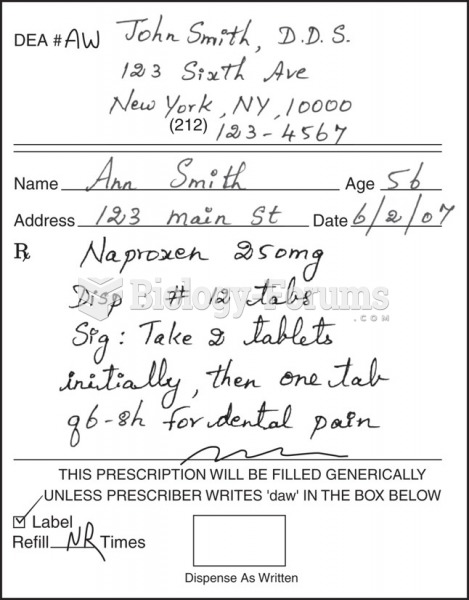|
|
|
Common abbreviations that cause medication errors include U (unit), mg (milligram), QD (every day), SC (subcutaneous), TIW (three times per week), D/C (discharge or discontinue), HS (at bedtime or "hours of sleep"), cc (cubic centimeters), and AU (each ear).
In the United States, an estimated 50 million unnecessary antibiotics are prescribed for viral respiratory infections.
Cyanide works by making the human body unable to use oxygen.
A seasonal flu vaccine is the best way to reduce the chances you will get seasonal influenza and spread it to others.
Giardia is one of the most common intestinal parasites worldwide, and infects up to 20% of the world population, mostly in poorer countries with inadequate sanitation. Infections are most common in children, though chronic Giardia is more common in adults.







